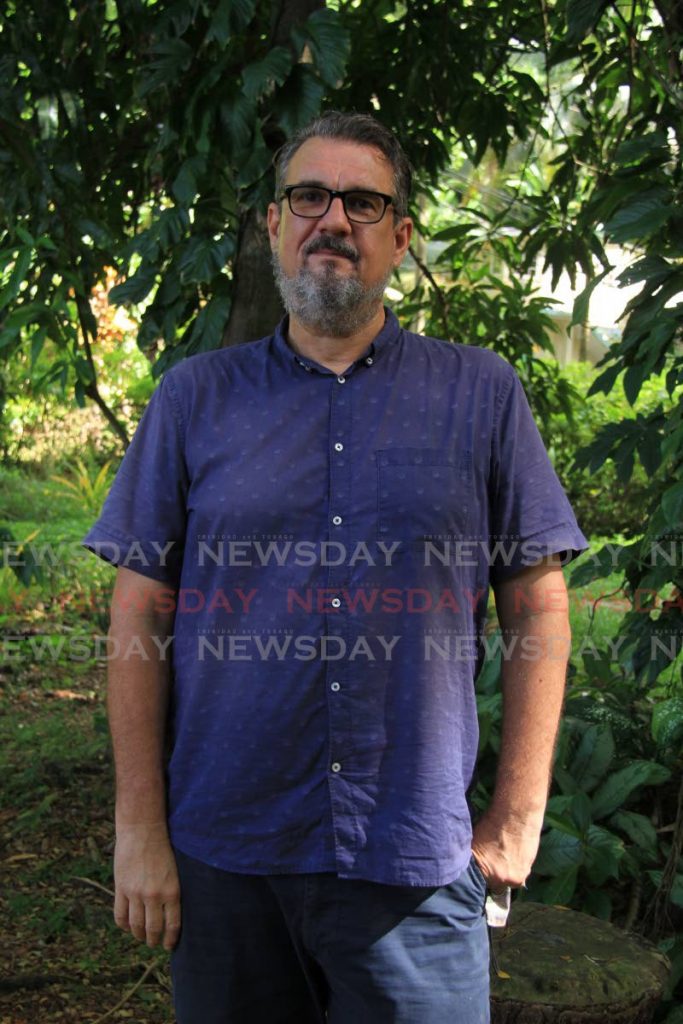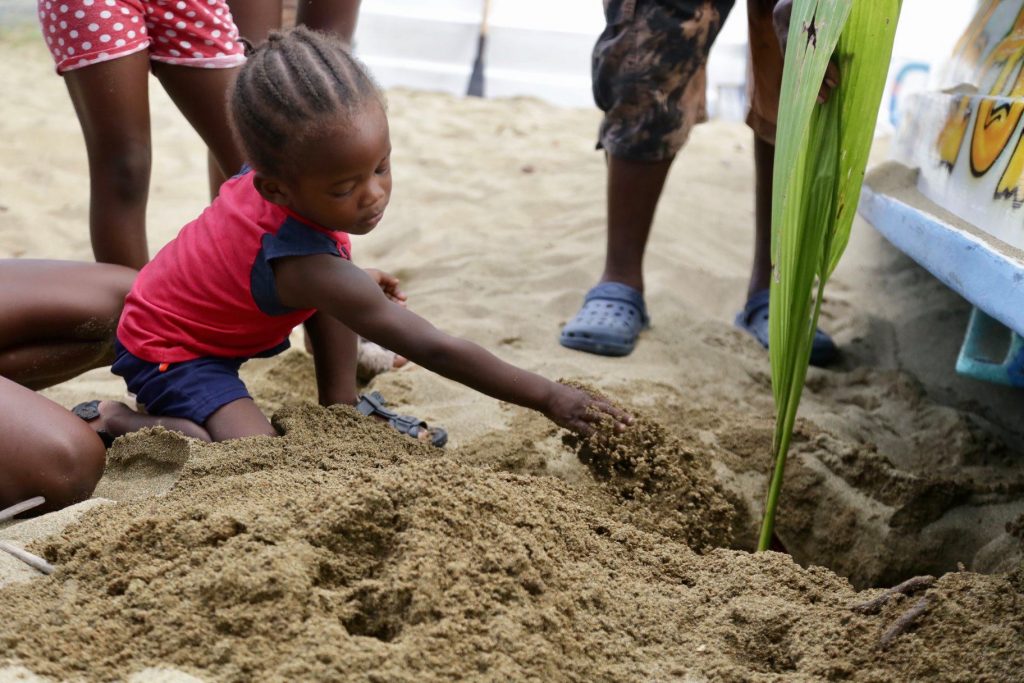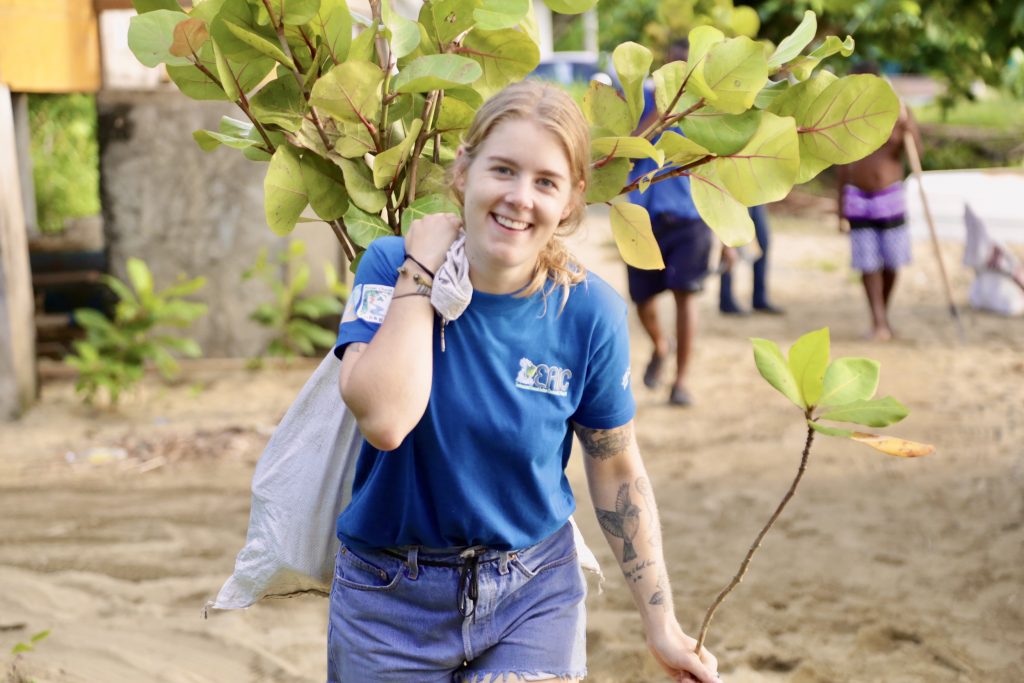Environmental Research Institute: Climate change affecting Tobago

Charlotteville (ERIC) founder and CEO Aljoscha Wothke is urging Tobagonians to pay closer attention to the impact of climate change on the environment.
He said while Tobagonians are experiencing the effects of climate change in their everyday lives, many of them do not associate the changes in the environment with the phenomenon.
“That is the problem,” Wothke told Newsday Tobago during a recent interview at the ERIC’s headquarters in Charlotteville.
He observed some people are still building houses in flood-prone areas.
“People still behave the same way and if they are not careful, they risk losing things.
“This is why we planted trees all along the coastline, because that is the major issue of losing beaches and losing coast.”
Wothke used Mt Irvine beach as an example.
“If you look at Mt Irvine 20 years ago, it was a wide beach, and now it is just a small fraction of what it was.”

Founded in April 2014, ERIC is a non-profit organisation which seeks to assist northeast communities by promoting the link between conservation efforts and livelihoods.
“In hip wording, we are about the blue and green economy. That is, we are trying to help and see how people in northeast Tobago and Charlotteville are able to benefit financially from a healthy environment,” Wothke said.
The organisation’s scope of work covers the fishing, forestry, tour-guiding and tourism sectors. Wothke said ERIC’s work in northeast Tobago, thus far, has been hugely successful.
On October 28, the region was awarded the prestigious UNESCO Man and the Biosphere designation. The area is now the largest UNESCO-branded site in the English-speaking Caribbean, spanning 15 communities from Belle Garden in the east towards Moriah in the northern part of the island.
Wothke, whose expertise includes protected area management, climate change, tourism and environmental resource management, regarded the award as a major stepping stone for developing the region in a sustainable way.
He said residents living in communities in northeast Tobago need to understand how climate change affects them.
“People still think climate change has something to do with polar bears, glaciers, something that is far away and something that they cannot influence.”
He added: “The reality is that everybody observes that we are getting sargassum (seaweed), which is a climate-change thing, we getting higher waves and the coasts are eroding, which is a climate-change thing.
“We are realising we get mangoes three times a year and plants flowering at different times. Butterflies are coming at different times. The fish are not migrating as they used to do.”
Wothke said, generally, Tobagonians are conscious about the environment.
“There are obviously some bad apples. But I think the majority of the people very well understand that this is our culture and natural heritage and we depend on it. I think they are proud of it.”
With its small staff of six, Wothke said the organisation’s work is about preserving the environment and promoting greater awareness.

“From biological data collection in the forests, from climate change to the ocean, we are checking whether the reefs are healthy, whether the forests are healthy.
“We have nurseries for corals, so we are planting out corals. We planted 2,500 trees along the coast in northeast Tobago.
“We are preparing people to be prepared for climate change and to understand the importance of a healthy environment for their businesses and livelihoods.”
Wothke said ERIC also does training courses for people in the tour-guide industry.
“We show them how they can upgrade their tours by making more money and at the same time, collect data on health.”
He said the organisation works closely with the Division of Fisheries, Forestry and Food Production; Tourism, Culture and Transportation; and Infrastructure, Quarries and the Environment, on policy matters. It has also established relationships with environmental groups in northeast Tobago.
As part of its agenda, Wothke said ERIC is currently doing research on sharks. He said Tobago has been proven a “bright spot” for sharks in the Caribbean.
“We are not as bad as Jamaica, where you don’t find any sharks any more. But sharks are very important for the reef health and for fisheries. Where there are sharks, there are fish. Where there are no sharks, there are (fewer) fish. That is generally misunderstood.”
The organisation’s initiatives are funded through a variety of sources, including the private sector and the State. Wothke said ERIC also received money from international donors as well as through its dive business.
He said ERIC is the first organisation in Tobago to get Green Fund approval.
“So we are doing a Green Fund project regarding sea-turtle observation. So we will observe sea turtles, especially males, under water. We will tag them and see how they travel throughout the Caribbean.
“Hopefully we can share this experience with other organisations in Tobago, that they can also access the Green Fund.”

Comments
"Environmental Research Institute: Climate change affecting Tobago"